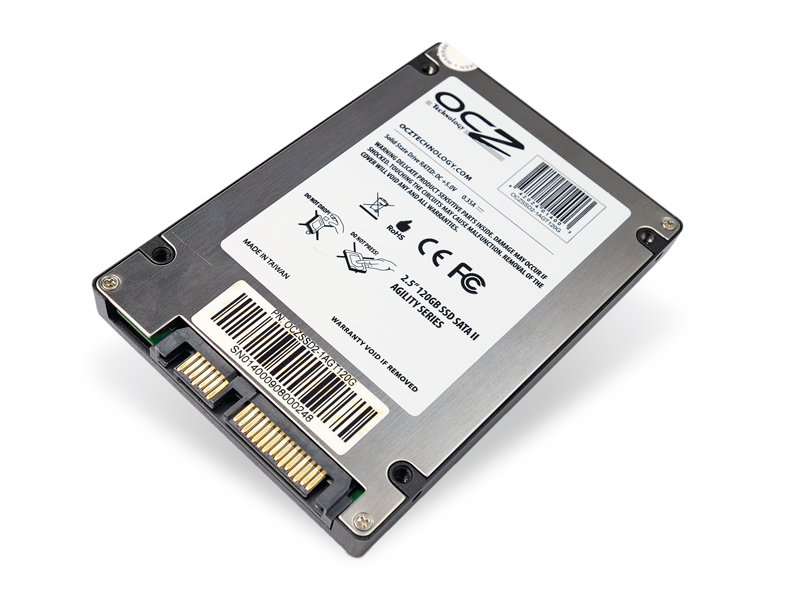TechRadar Verdict
A promising drive scuppered by nasty stuttering. Fingers crossed for TRIM...
Pros
- +
Good GB/£ ratio
- +
Indilinx controller
Cons
- -
er, Indilinx controller
- -
Serious stuttering
Why you can trust TechRadar
The controller chip, that's what it's all about. It's a familiar refrain when it comes to solid state drives, or SSDs for short.
Historically it made a lot of sense, especially back in the days when many SSDs were powered by the dreaded, near-cacheless, JMicron controller.
That single, utterly awful controller chip was responsible for nearly a whole generation of awfully stuttering SSDs.
Today, there are a number of much improved SSD controller chips available from the likes of Indilinx and Samsung. Consequently, stuttering SSD performance is much less common.
As we found in our recent SSD supertest, however, it's not been entirely banished. And once again, we're beginning to think a particular controller could be to blame. Unfortunately, it rears its ugly head once again with OCZ's new Agility 120GB.
That's a real shame because, on paper, the Agility is a winner. Its both reasonably capacious at 120GB and moderately affordable at £230. The latter makes it around £70 cheaper than OCZ's conspicuously similar Vertex 120GB.
Both the Agility and Vertex drives pack 64MB of cache and share the generally well regarded Indilinx Barefoot SSD controller chip, the latter, unfortunately being the source of our increasing suspicions.
Stuttering SSD
Why then does the Agility suffer from some seriously debilitating stuttering during our testing? It's a question we pondered in the supertest, too, thanks to similar lag exhibited by Patriot's Torqx, another drive powered by the Indilinx controller.
What makes things really confusing is that the Indilinx-powered OCZ Vertex did not stutter one little bit. It's all rather frustrating but the explanation is probably twofold.
Firstly, the way we test SSDs is specifically designed to expose any propensity to stutter. We fill SSDs up to the brim and then empty them of data before we start. It's the best way to simulate the condition of a used drive, i.e, one in which each memory cell has been written at least once.
The problem is that used cells can perform much slower than virgin cells. Secondly, there's the question of firmware. Drive sellers typically take a full package of hardware and software off the shelf and then rebadge it (the OCZ Vertex and Patriot Torqx are essentially identical, for instance).
But they do, however, get involved with tweaking the firmware and it's possibly here that the real difference can be made in performance terms.
Whatever the truth though, it's currently tough to recommend the Agility series of drives from OCZ. And that despite some decent peak throughput numbers.
Read and write speeds of 216MB per second read and 153MB per second write are extremely competitive at this price point. What's more, the issue of SSD might just disappear altogether with the introduction of support for the TRIM command in Windows 7.
But for now synthetic results like that do nothing to communicate the painfully laggy, monumentally frustrating, real world performance this drive delivers in "used" condition. It's not good enough at any price. At over £200 then, it's borderline insulting. Clumsy.
Follow TechRadar Reviews on Twitter: http://twitter.com/techradarreview
Technology and cars. Increasingly the twain shall meet. Which is handy, because Jeremy (Twitter) is addicted to both. Long-time tech journalist, former editor of iCar magazine and incumbent car guru for T3 magazine, Jeremy reckons in-car technology is about to go thermonuclear. No, not exploding cars. That would be silly. And dangerous. But rather an explosive period of unprecedented innovation. Enjoy the ride.

